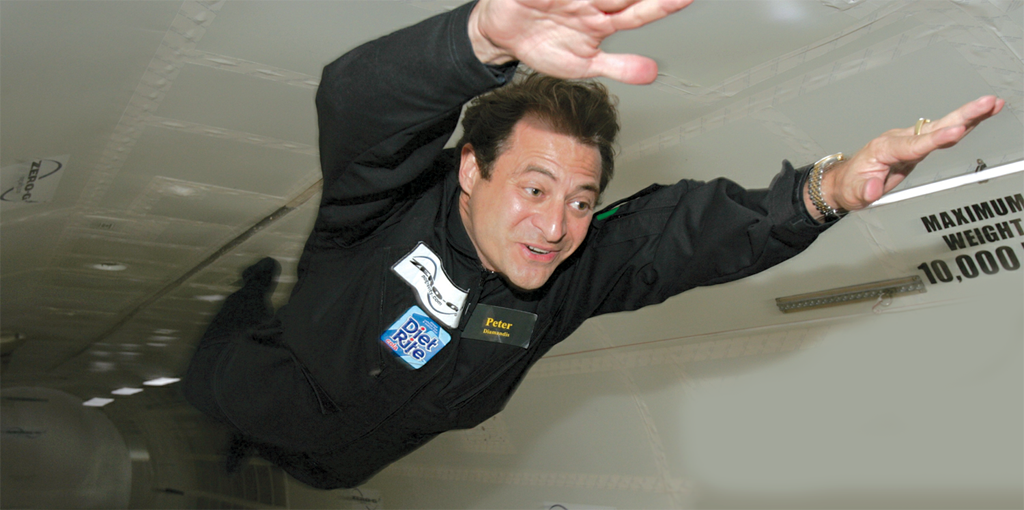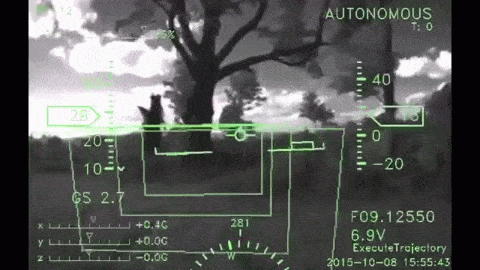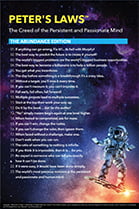
In the past six years, we have discovered 1,031 planets circling around distant stars "in the habitable zone" (i.e. not too cold, not too hot… able to sustain life).
These are 1,000 of an estimated 40 billion Earth-sized planets within the Milky Way that have been identified by an incredible spacecraft called Kepler.
Launched in 2009, Kepler is a NASA space observatory designed and managed by NASA Ames (Mountain View, CA), as the first step to discovering life in our universe.
P.S. Send any tips to our team by clicking here, and send your friends and family to this link to subscribe to Abundance Insider.
The Kepler Mission
The Kepler Mission was "designed to survey our region of the Milky Way galaxy to discover hundreds of Earth-size and smaller planets in or near the habitable zone and determine the fraction of the hundreds of billions of stars in our galaxy that might have such planets."
The fraction, per former NASA Ames Director Pete Worden, is about 25% (more on Pete in a moment).
Kepler's sole instrument is a photometer. This instrument "continuously monitors the brightness of over 145,000 main sequence stars in a fixed field of view.
This data is transmitted to Earth, then analyzed to detect periodic dimming caused by extrasolar planets that cross in front of their host star."
The mission has been wildly successful and is still imaging the sky as we speak, despite the fact that Kepler was only commissioned to last until 2013.
One of the heroes of Kelper, responsible for making it a success, is now responsible for searching for intelligent life in our universe (SETI).
Meet Pete Worden
In my Abundance 360 webinar this week, I had a chance to talk with incredible visionary Dr. Pete Worden, a dear friend of mine for the past 30 years.
Pete has had a storied career.
He received his Ph.D in Astronomy, is a retired Brigadier General of the U.S. Air Force, and the past head of technology for the U.S. Strategic Defense Initiative (think missile defense program), overseeing a budget of $2 billion a year.
He became the director of NASA's Ames Research Center at Moffett Field, which he ran for nine years.
At NASA Ames, he was my partner and landlord of Singularity University, and the person who ran the Kepler program.
Today, after leaving NASA Ames, Pete has been tapped by Russian billionaire investor Yuri Milner (founder of mail.ru), who is most famous for his brilliant track record making major investments in companies like Facebook, Twitter and Alibaba.
For Yuri, Pete is now running the Breakthrough Prize Foundation – with the assignment of running a $100 million effort to find extraterrestrial life.
What is the Breakthrough Prize Foundation?
About five or six years ago, Yuri Milner noted that if you take a list of the 100 most famous people on the planet, none of them are scientists.
That's really too bad – most of the wealth that has been made in the last century is because people made advancements in science and technology.
He decided to create a series of awards that would both incentivize and popularize outstanding scientific achievement -- an Academy Awards of Science, if you will.
The over $30 million in prizes honor important, primarily recent, achievements in the categories of Fundamental Physics, Life Sciences and Mathematics.
The donors? A few familiar names: Sergey Brin and Anne Wojcicki, Mark Zuckerberg and Priscilla Chan, Yuri and Julia Milner, and Jack Ma and Cathy Zhang.
Within this ecosystem, one key issue has really piqued Yuri's interest: are we alone in the universe and what is the future of life?
The Breakthrough Initiative – Breakthrough Listen
This summer, alongside Prof. Stephen Hawking and an esteemed board of scientists, Milner announced an unprecedented $100 million global Breakthrough Initiative to reinvigorate the search for life in the universe.
The initiative, called "Breakthrough Listen," seeks to answer three fundamental questions:
- How did life begin?
- Where else is it in the galaxy and universe?
- What’s the future of life here on Earth?
It is the biggest scientific search ever undertaken for signs of intelligent life beyond Earth.
It is 50 times more sensitive than previous programs dedicated to SETI research, will cover 10 times more of the sky than previous programs, and will scan at least five times more of the radio spectrum – and 100 times faster. Finally, in tandem with a radio search, it will undertake the world's deepest and broadest search for optical laser transmissions.
I asked Pete if he thought there was life on Europa and Mars. He replied:
"Yes and yes on both of them. I believe life is all over the universe. I think we are going to find some life on Mars probably by the end of this decade. The key question is: is that life Earth-like? Or is it weird life, or what we'd call a Second Genesis."
Going from Success to Significance
When asking a series of experts, "What do you think the likelihood of finding an intelligent signal is?" Pete estimates that the median was less than 1%.
How many people would say, "I want you to spend $100 million on something with less than a 1% chance of success"?
The truth is that an answer to the question "Are we alone?" is worth the investment.
"More importantly," Pete continues, "this is a mindset that I think powers Silicon Valley. We have people now that are willing to do the really bold things. And that accept failure as an option. This is a mindset that is going to take us to the stars."
A quick look at Yuri Miler's Wikipedia page pegs his net worth at some $3 billion. So spending $100 million is 3% of his wealth.
Ask yourself this question: What problem is big and significant enough that you would spend 3% of your net worth on answering it, even if you only had a 1% chance of a positive outcome?
You might find some interesting opportunities.
WHAT IS ABUNDANCE INSIDER?
This email is a briefing of the week's most compelling, abundance-enabling tech developments, curated by Marissa Brassfield in preparation for Abundance 360. Read more about A360 below.
WANT MORE CONVERSATIONS LIKE THIS?
At Abundance 360, Peter's 360-person executive mastermind, we teach the metatrends, implications and unfair advantages for entrepreneurs enabled by breakthroughs like those featured above. We're looking for CEOs and entrepreneurs who want to change the world. The program is highly selective. Apply now for Abundance360 Summit if you'd like to develop an Abundance Mindset.
Know someone who would benefit from getting Abundance Insider? Send them to this link to sign up.







